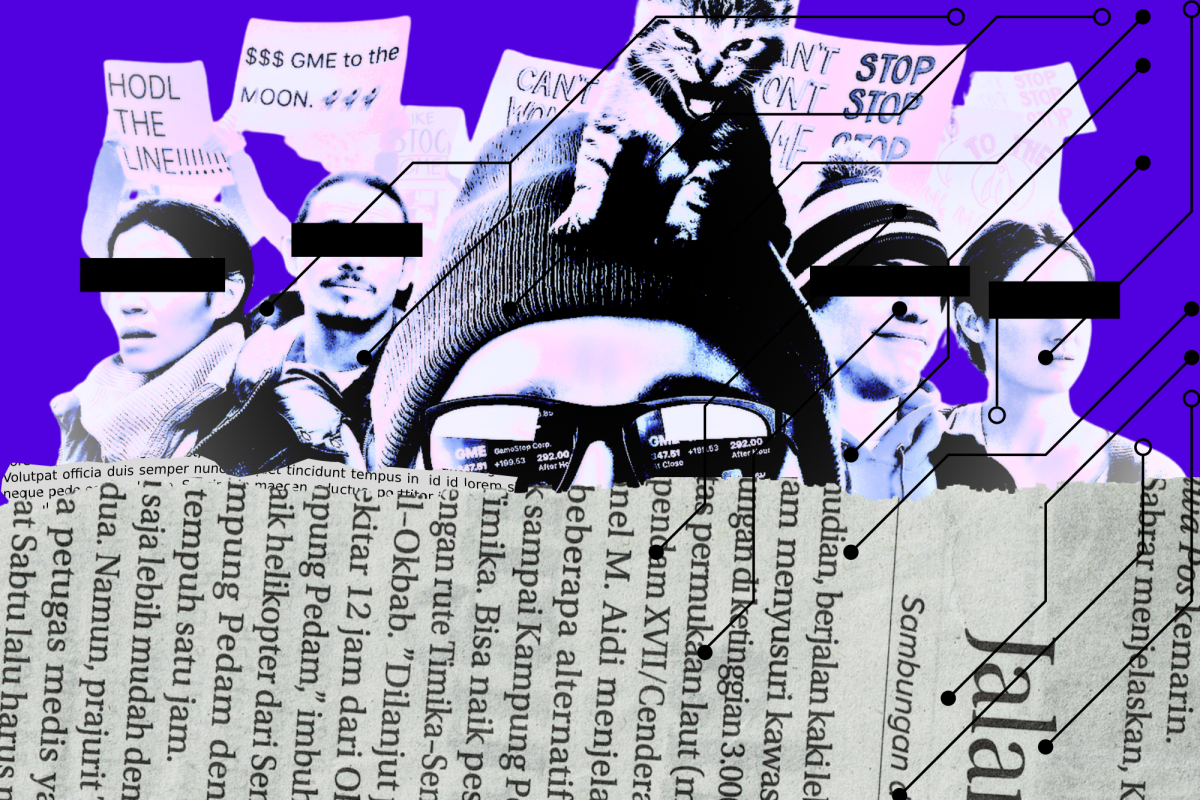During the COVID-19 pandemic, boredom drove the masses to the Wild West of the internet–Reddit forums. The pandemic induced fear and uncertainty that correlated with the rise of “Wall Street Bets,” a forum dedicated to the stock market, ran by unanimous users exchanging personal knowledge.
Many people’s means of earning a living were taken from them. The people’s hunger for a quick buck drove them to the stock market and the uncharted territory of a short squeeze.
A short squeeze is when investors place a bet that the price of a stock will fall and are then forced to buy shares to cover their positions as the stock’s price rises unexpectedly.
Keith Gill aka Roaring Kitty used Wall Street Bets to promote his videos where he would analyze the market and discuss his portfolio. During the pandemic, he bought $53,000 worth of GameStop shares, which led to a hype that was dramatized by the film, “Dumb Money.”
The film follows a group of people believing the word of Roaring Kitty as gospel and following his instincts of buying certain stock in hopes of making them rich. The movie follows a GameStop employee working during the pandemic, two college students hoping to make enough to pay off their student loans and a single mom dreaming of paying off her debts.
The group of ragtag outcasts attempted to outwit Wall Street by blindly placing a bet. They put all of their marbles into the unpredictable world of the stock exchange – the kind of dumb risks people only take when the world might be ending.
In challenging times, taking a risk is a part of growth. It’s good to take yourself out of your comfort zone. It’s the reason why after I am continuing to write for SACMedia instead of taking a long term subbing assignment I was offered.
Last year, I left my job in education to take classes in journalism and start a new career. At the beginning of the new year, the Pomona Unified School District offered me a long term assignment.
Taking it would mean dragging myself back to the career I left. Taking the assignment would mean more money but it conflicted with my school schedule.
Instead of taking the money and falling victim to the quick sand that is the field of education, full of germ-littered kids, improvising lessons because I don’t get paid enough to take work home, or trying not to laugh at the names millennial parents picked, I decided to hold the line and continue writing.
“Hold the line,” was a term used during the rise of GameStop stock prices. It was used as a call to action for all the owners of the stock not to sell when things were looking bleak for GameStop.
In the movie, after hedge funds lose money, Robinhood, a stock exchange app, turned off any buying options for GameStop stock, after Reddit shut down the subreddit, even after Roaring Kitty was blocked from sharing his portfolio, the outcasts making up the rest of the 99% held the line and did not sell their shares.
That scene played as a parable to my situation. When I made the decision to take a pay cut in order to continue my journalistic endeavors, Sports Illustrated announced a massive staff liquidation. Pitchfork, the famous pretentious music blog, merged into GQ and many lost their jobs. The LA Times went on strike demanding the owners not to layoff its staff. Days later, the company laid off more than 100 of their reporters.
In my case, the big hedge fund monster journalism is fighting is artificial intelligence.
It is a tough time for journalism. Media consumption has changed. Writing is not a viable career and it is full of uncertainties. Publications like Sports Illustrated are creating fake writers and using AI to write articles.
Yet, I decided to pursue the career during the storm. I told myself to hold the line.
Just as the team of outcasts thought their investment would pay off and answer every question hanging above them, I took the risk.
According to the author Robert B. Allen, “Everything you want is just outside your comfort zone.” In an article published by Right as Rain, Anne Browning, associate dean for well-being at UW Medicine, said, “We want to live in the space where we embrace challenges where we don’t know if things will work. You get a whole lot of creativity when you stay in that stance.”
Here’s hoping this risk leads to more creativity.
For the investors in “Dumb Money,” it paid off. The outcasts made a good amount of money. As for my risk, only time will tell. For now, I will continue holding the line and writing until I get a job that will put me in a competition for my life against a robot.
Who else will tell the factual truth when the human race is being forced to burn books by the AI robot overlords.
“Dumb Money” is currently streaming on Netflix. Watch it before the AI tyrants get rid of it because they fear it might inspire taking a risk on a rebellion.



